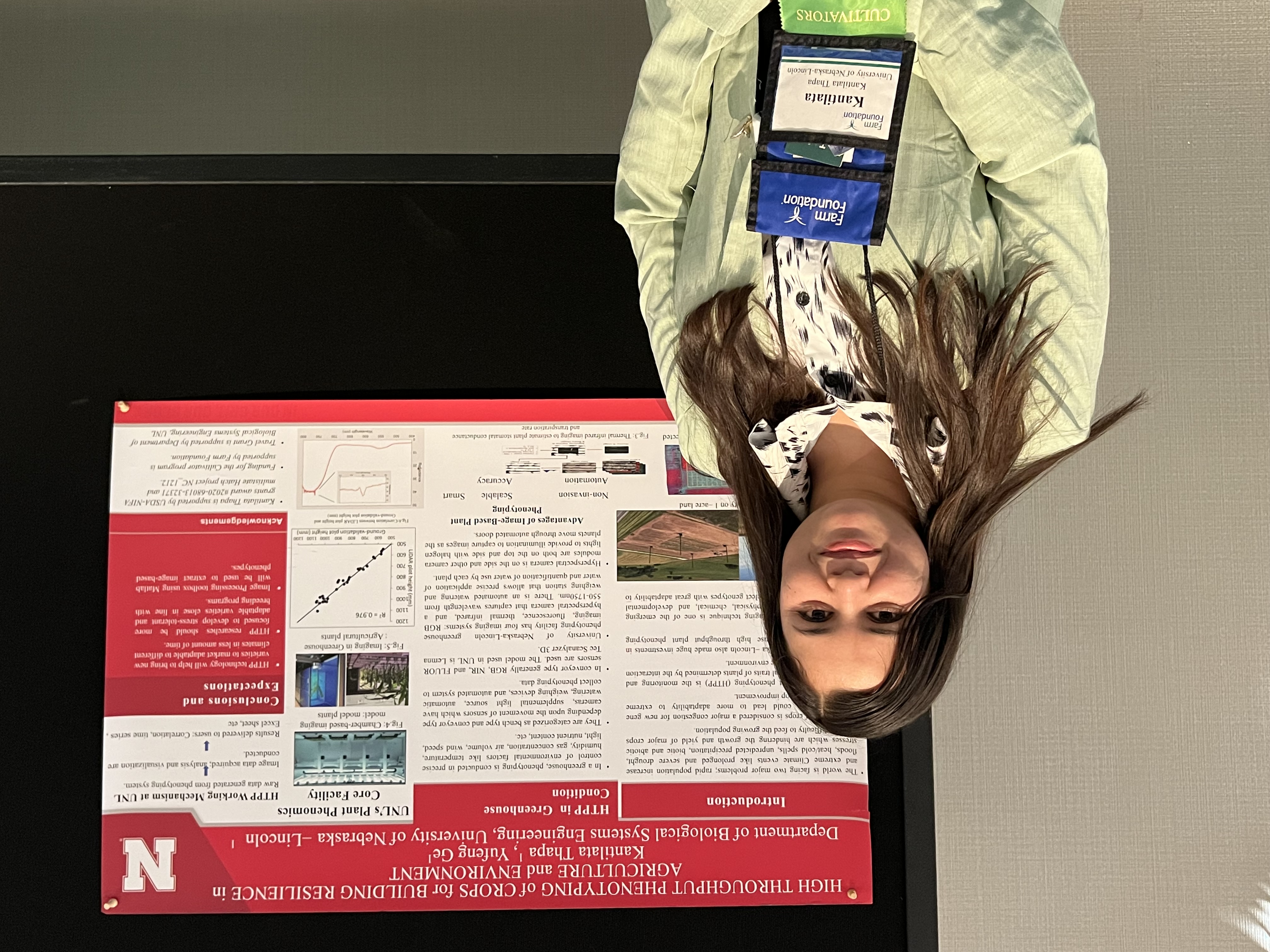Calendar Icon Jan 27, 2022 Person Bust Icon By Emily Case

Graduate student Kantilata Thapa was one of six students selected for the Farm Foundation Cultivators Program.
Based in Illinois, this competitive program selects six undergraduate or graduate students nominated by their college dean or department head to attend a Farm Foundation Round Table meeting. The twice-yearly event promotes discussion among academic, agribusiness, government and other stakeholders.
Thapa attended the most recent roundtable from Jan. 11-14, 2022, in Delray Beach, Fla., where she had the opportunity to share her research on plant phenotyping and crop resilience. She is in her second semester of the Mechanized Systems Management program.
"Overall, it was a very good experience. I got much more information about technology, agriculture and robotics," Thapa said. "It was a very interactive session for me to get to know more industry leaders, university faculties, students and policy makers."
As part of her participation in the program, she gave a poster presentation and PowerPoint presentation on high throughput phenotyping of crops for building resilience and plant phenotyping facilities at UNL.
She said the topic of agriculture technologies was a major draw for her to join the graduate program. The coursework allows her to learn about the latest in phenotyping — including imaging techniques and image analysis algorithms.
After earning her bachelor's degree from Agriculture and Forestry University in Chitwan, Nepal, she served rural communities in Nepal to address food security, disaster management and natural resource conservation issues. During this time, she witnessed first-hand the hardships caused by extreme climate events and how people were affected by climate change in their daily life.
Currently, her post-graduation goals focus on plant phenotyping technologies and building resilient agriculture.
"Plant phenomics is helpful because the main idea is to produce adaptable crops," she said. "In high throughput plant phenotyping, various technologies are used to determine crop characteristics to make them more resilient to climate."
Thapa learned about the program through a department email. She decided to apply after talking about it with her advisor, Dr. Yufeng Ge.
"It would not have been possible without continuous support from my advisor," she said. "He is a very helpful mentor, and he helped me with every step for preparing for the program."
She also thanked Dr. David Jones and Dr. Mark Wilkins for their support.
To learn more about the Farm Foundation Cultivators Program, visit the Farm Foundation website .